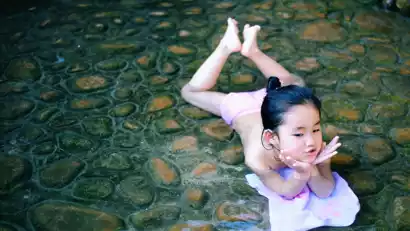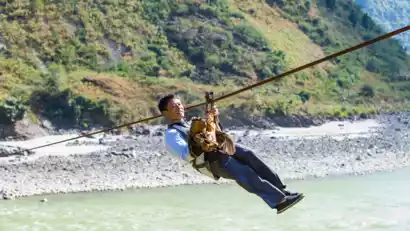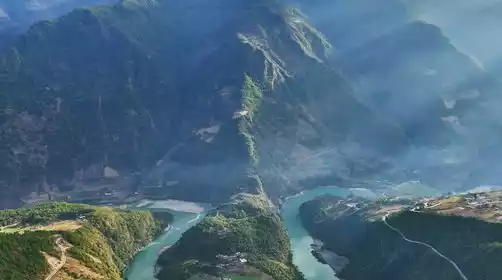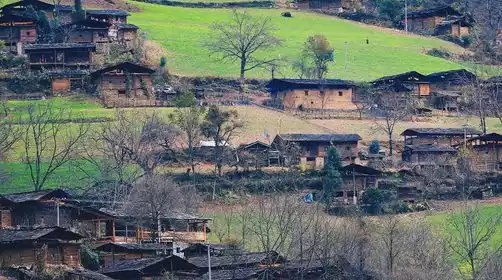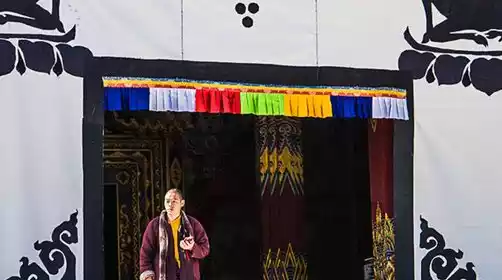Day 1: Gathering at Baoshan
All day
National tourists will check in at Baoshan hotels for the whole day (report "China-TravelNote+Name" for check-in). After settling in, they can enjoy the leisurely city of Baoshan.
How to get to Baoshan
1. From your city, go to Baoshan Yunrui Airport. Some cities have fewer direct flights, so you may need to transfer in Kunming.
2. After landing at Kunming Changshui Airport in your city, go to Kunming Railway Station and take the train to Baoshan Station;
3. From your city, go to Dali and transfer to the train to Baoshan Station;
Baoshan Attractions Guide
Baoshan, nestled on the western Yunnan border, holds many unexpected delights. If you arrive early, explore this small border town on your own.
Foodie tips: Hetu Supply and Marketing Cooperative Restaurant, Yongchang Huopiao Beef, Mianchang Tea Garden, Menghuan Dai-style breakfast, Chicken Soup with Roasted Pork Rice Noodles, Shangxiang Street Baoshan Chicken Skin Roll Noodles, and Li Ji Drinks.
Attractions: Qixian Ancient Temple, Taibaoshan Forest Park, Yongzi Chess Academy, and Banqiao Ancient Town.
2nd Tenpozan → Lomuden
·morning
The Pioneer Bookstore overlooks the Nu River and listens to the Lisu people's natural music.
In the morning, we set off towards the Nujiang River, first visiting the Nujiang Grand Canyon Pioneer Bookstore, halfway up the mountain, overlooking the magnificent Nujiang Gorge. We then headed to a local home, where we gathered around a fire pit, drank a pot of roasted tea, and listened to the three major tunes of Lisu folk songs: Baishi, Youye, and Mugua. The ethereal, unaccompanied sounds flowed slowly through our lips, as if we were hearing the gentle moments of time in the canyon.
·afternoon
Zhiziluo's City of Memory, Searching for Forgotten Times
At an opportune time, visit Zhiziluo, the city of memories. Originally the political, economic, military, and cultural center of the Nujiang Lisu Autonomous Region, Zhiziluo was disbanded from Bijiang County with the opening of the Nujiang River highway and the county seat's location on a massive landslide. Walking along the gray streets, you can clearly see slogans from various periods adorning the mottled walls, offering a glimpse into this forgotten history. Along the way, you'll stop at the roaring Tiger Leaping Gorge and the perilous Feilai Stone.
·night
Visit the Nu Village of Laomudeng and enjoy the original ecological evening to taste Nu cuisine
Finally, we'll check into Laomuden. We'll have some free time to visit Laomuden Church. Its towering cross, white walls, red tiles, and crimson windows are reflected in the emerald green pond, with the towering Gaoligong Mountains as its backdrop, creating a tranquil and sacred atmosphere. We'll reconvene for dinner, enjoying traditional Nu cuisine. A local singer will perform traditional Nu songs, showcasing the warmth of the ethnic group.
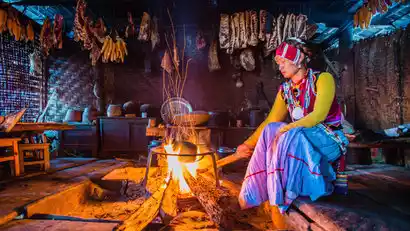
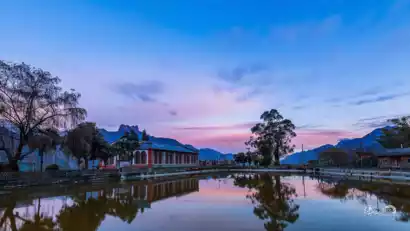
Day 3 Laomudeng → Bingzhongluo
·morning
Sunrise at Crown Peak, enjoying the morning at Nujiang Grand Canyon
Wake up in the morning and be surrounded by this pristine village. Take in the distinct layers of scenery, reminiscent of a traditional Chinese painting, as you gaze upon the sun-drenched Golden Mountain, the Nujiang Grand Canyon, and the vibrant morning scenery. After breakfast, depart for Bingzhongluo. Along the way, admire the Stone Moon, hear legends about the origins of the Lisu people, experience the wrath of the Nujiang River, and admire the breathtaking First Bend of the Nujiang River and Peach Blossom Island.
·afternoon
Take a light hike on the Ancient Tea Horse Road and visit a Nu family in Wuli Village
After arriving in Bingzhongluo, we'll travel to Wuli Village. From the opposite bank of the Nu River, we'll admire its panoramic views. We'll then follow the ancient Tea-Horse Road, winding along the Nu River, for an easy hike into Wuli Village (approximately one hour, mostly flat, and quite relaxing). Here, at the filming location for director Tian Zhuangzhuang's documentary "Derram," we'll experience the vibrant ecology of a Nu village. We'll also visit a local Nu family, enjoy a slate-crusted baba, drink butter tea, and listen to authentic xianzi music.
Wandering around Dongfeng Village, you'll understand the core of the coexistence of humans and gods
After returning to Wuli Village, we'll travel to Dongfeng Village, where farmlands nestled against the mountainside are planted with rice in summer and autumn, and rapeseed blossoms bloom in spring. Wandering through the fields, we'll gaze upon the sacred Mount Gongdang in the distance. We'll also visit the three major religious structures in Bingzhongluo: the Dongfeng Village Christian Church, the Chongding Village Catholic Church, and the Tibetan Buddhist Puhua Temple (exterior view; some buildings are accessible; please observe religious customs when entering), and learn why Bingzhongluo is known as a place where humans and gods coexist.
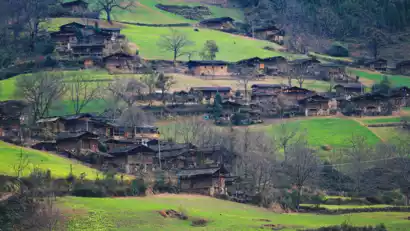
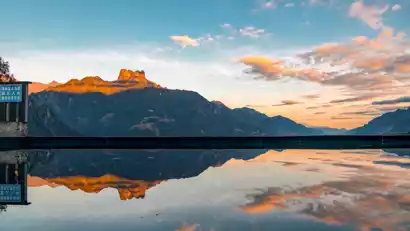
Day 4 Bingzhongluo → Dulongjiang
·morning
Gongdang Mountain is high above, overlooking the First Bay of Nujiang River and Bingzhongluo
After breakfast, we'll ascend to Gongdang Mountain. Today, we'll enjoy a vantage point overlooking the First Bend of the Nu River. Mornings are typically filled with surging clouds, creating excellent light. The Nu River, like a silk ribbon, appears and disappears through the mist. Combined with Dala Village to the right of the bend, the scene feels like a fairyland. We'll then descend, stopping along the way to admire the panoramic view of Bingzhongluo. On a clear day, we'll also be able to see the main peak of Gaoligong Mountain, Gawa Gap Snow Mountain (5128 meters).
The Dulong River Highway crosses Gaoligong and meets the ancient secrets
Travel to Dulong River at an appropriate time. After passing through Gongshan County, turn onto the Dulong River Highway. Along the way, admire primeval forests, hundreds of peaks, a thousand-acre bamboo forest, and the nationally protected Gongshan Taiwania bald cypress. Overlook the Biluo Snow Mountain, Dangdanglika Mountain, and Nanmowang Mountain. Dulong River, recognized by experts as a "natural museum of wild plants," is one of my country's most pristine and well-preserved ecological areas, home to the ancient and reclusive Dulong people.
Filing instructions: If it is impossible to enter Dulong River due to force majeure, the filing will be activated: D3 Bingzhongluo - light hiking in Kongque Mountain or Arulaka - looking for tattooed women near Bingzhongluo - staying in Bingzhongluo; D4 Bingzhongluo - Gongdang Sacred Mountain overlooking the first bend of Nujiang River - light hiking in Gaoligong Mountain - experiencing Lisu people's musical instruments - staying in Fugong County. The subsequent itinerary remains unchanged and the cost remains unchanged.
·afternoon
Pukawang Glass Water Wonderland, visit the inheritor of the Dulong ethnic group's intangible cultural heritage
We'll travel to Pukawang Village in the lower reaches of the Dulong River, where the Danluo and Buka Rivers converge. The crystal-clear water gurgles gently, and at the river's edge, rocks block the flow, creating waves. Deep below, a shimmering expanse of emerald green unfolds. The natural scenery is breathtaking, offering close encounters with snow-capped mountains, ancient suspension bridges, and villages, creating a paradise on earth. We'll also explore other villages, visiting inheritors of the Dulong ethnic group's intangible cultural heritage, gathering around a fire pit, enjoying traditional Dulong food, listening to ancient Dulong music, and experiencing traditional Dulong life.
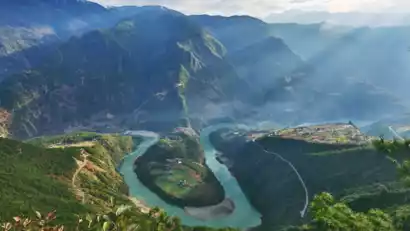
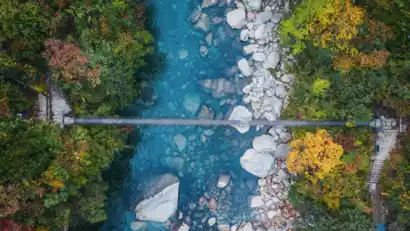
Day 5 Dulongjiang → Fugong County
·morning
Explore traditional villages and find women with facial tattoos
This morning, we traveled to a mysterious village in search of the Dulong people's enigmatic "face-tattooed women." There's no definitive explanation for the origins of face tattooing, but three theories circulate among the people: one is that girls aged 12 to 15 were tattooed to prevent the Tibetan chieftains of Chawalung from seizing them, thus appearing unattractive; the second is that the custom of face tattooing is connected to the tribe's long-lost totem worship; and the third is that the Dulong people at the time believed that facial tattoos were a symbol of beauty, and that untattended women were unmarriageable. Today, the Dulong people no longer practice face tattooing, and with the passage of time, the ancient and mysterious face-tattooed women will vanish into the long river of history.
Special note: 1. The tattooed women are older and will not accept guidance on movements when taking photos; 2. The tattooed women are old and have weak physical conditions. If the tattooed women in Dulongjiang Township are unwell or out when the group departs, the group will be moved to the area near Bingzhongluo. Please understand.
·afternoon
Gaoligong Mountain Light Hiking, Magical Forest Safari
Departing from the Dulong River at the right time, and reaching the Nu River, we'll re-enter a hidden gem of the Gaoligong Mountains. Here, towering ancient trees and ferns abound. Wander through the mossy forests, dappled sunlight filtering through the trees, and stepping on the soft fallen leaves, we can experience the incredible diversity of species. From May to June, the rhododendrons here bloom in succession. After October, with the arrival of autumn, the forest gradually becomes tinged with red and yellow, adding to its vibrant colors.
·night
Visit Lisu families and listen to intangible cultural heritage instruments
After dinner, we will go to a Lisu family's intangible cultural heritage home, sit around the fire pit, and explore the mysteries of Lisu musical instruments such as the mouth harp, qiben, and dilitu with the Lisu intangible cultural heritage inheritors. We will drink a sip of hot tea, taste the ethnic pestle wine, listen to the sounds from the canyon, and learn about the making and use of musical instruments.
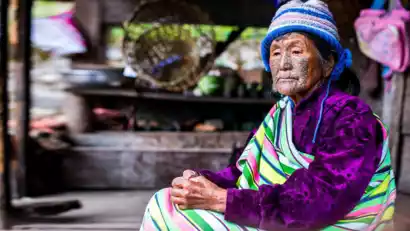
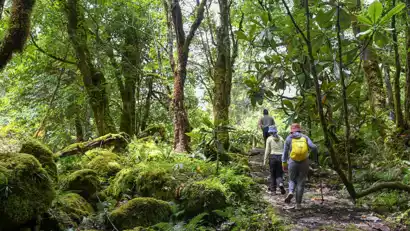
Day 6 Fugong County → Baoshan City ★ Disbandment Day
·morning
A leisurely morning by the Nu River, free time around the hotel
After breakfast, take some time to explore the surrounding areas of the hotel. Walk along the plank road behind the hotel to the tea garden or the village, or order a cup of Yunnan specialty coffee in the cafe. Enjoy a lazy morning by the Nujiang River and watch the water slowly flow south.
Heading south down the Nujiang Gorge, you'll encounter a bathing pond and zipline.
We'll depart at the right time, enjoying a glimpse of the Lisu people's zipline (a representative form of primitive transportation within the Nujiang River, still widely used today). Nearby, we'll find a fascinating cluster of natural hot springs, which have given rise to the traditional folk festival of bathing. This simple, natural, and rare gathering is praised as a place where both men and women bathe in the hot springs, cleansing themselves from worldly desires and calming their souls. We'll also take time to enjoy a truly natural hot spring bath.
·afternoon
Today is the day to disband, and we're saying goodbye to the Nu River! We'll depart around 12:00 PM, arrive at Baoshan Station around 3:30 PM for a group transfer, and arrive at Baoshan Yunrui Airport around 4:30 PM for a group transfer. For your return trip, please book a train after 4:00 PM or a flight after 6:00 PM. Please allow extra time on holidays. If you need to continue to Baoshan City, you'll disband near the Baoshan People's Hospital branch.
